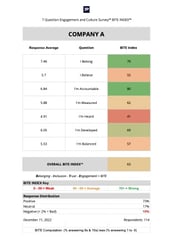In his appearance on the Tractionville Podcast, EOS implementer and 7Q7P CEO Walt Brown shared the backstory behind his emergence in the world of EOS with hosts Chris White and Benj Miller, while also sharing some valuable pieces of advice based on his experiences with setting companies on a new trajectory thanks to the 7 Question - 7 Promise Framework.
At the beginning of the interview, Walt answers questions about being contacted by Don Tinney, traveling to Livonia, Michigan, and learning the EOS methodology. Following this meeting and orientation, Walt immediately moved nine of the 33 client companies he was coaching at the time onto the EOS system with tremendous results. Walt mentions that he has successfully coached more than 160 companies through the EOS process as of 2019.
Walt then moves to discussing the nature of companies, and the idea that an organization is a fiction that is only given meaning and power by the people who buy in. He underscores how an internal fracture within a company can result in the employees within that one company functionally working for two or more organizations from a pragmatic approach.
Ultimately, Walt names the 7 Questions that business leaders need to ask their employees and get those employees to answer “yes” to, since his stated belief is that everything needs to be anchored in the 7 Questions and 7 Promises. The 7 “yes” statements Walt desires for business owners to be able to extract from their employees are:
- Yes, I belong.
- Yes, I believe.
- Yes, I understand and embrace what I’m accountable for.
- Yes, I understand and embrace how I’m measured.
- Yes, I understand and embrace how my organization listens and how I am heard.
- Yes, I understand and embrace how I’m being developed.
- Yes, I understand and embrace how I have balance.
Walt then elaborates on the “Millennial Myth,” which he considers to be a pervasive mischaracterization of young professionals in the modern business world. Walt expresses his belief that Millennials are just like all other employees, but their rubric-centered upbringing has given them a lower tolerance for corporate disorganization than older generations. Therefore, if Millennial employees are not happy, Walt says he finds that the cause of the problem frequently lies with the business owner, and not with the young employees.
The full interview can be listened to by clicking the link below.
https://overcast.fm/+Tk2lHrX0c





